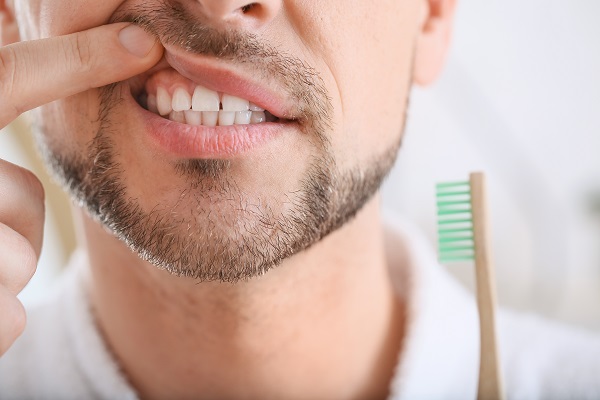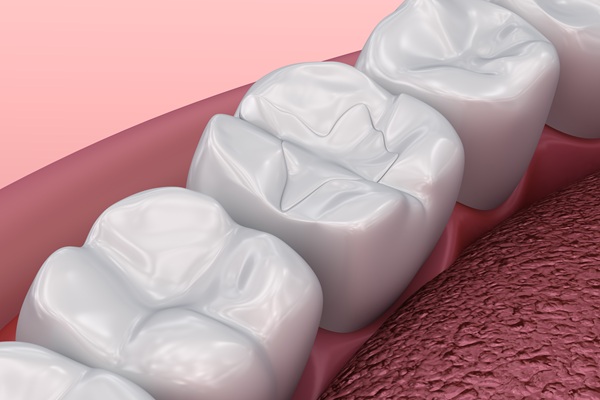Easy Tips to Prevent Gum Disease

Like tooth decay, gum disease is preventable. You can avoid serious oral health problems by improving a few habits and being more diligent about your dental care. Gum disease can affect people of all ages. It can also contribute to infections, tooth loss, and other concerns. Your dentist can help you avoid this condition and treat the disease if it starts to develop. It is important to pay attention to some basic prevention tips.
The effects of gum disease
Before understanding how to prevent gum disease, individuals should recognize what it can do to the body. Gum disease starts out as a more minor condition called gingivitis. This is when the gums become red, start to swell, and begin to bleed. If the patient does not address these issues, periodontitis can result. This more serious form of the disease causes the gums to shrink, exposing more of the tooth. This creates gaps where bacteria can hide.
Eventually, bone loss can occur, which can cause the teeth to become loose and fall out. The bacteria can cause infections in the mouth and throughout the body. If the bacteria get into the bloodstream, it can cause heart problems. Strokes and heart attacks can result.
Brush often
Dentists tell patients of all ages to brush their teeth regularly. People who brush at least twice a day are more likely to stay away from gum disease. Individuals should use a soft-bristled brush and fluoride-based toothpaste. It is effective to brush before bedtime and in the morning. Brushing after mealtime is important too. Brushing will prevent the buildup of plaque and removes food particles from the gumline and in between teeth.
Floss daily
It is common for dental patients to report to the dentist or hygienist that they do not floss often enough. Flossing every day will keep gums healthy. This habit will dislodge food and other debris from in between teeth. It keeps the gums from becoming inflamed and receding. Flossing will help individuals to avoid tartar buildup and the severe problems that can follow.
Make and keep dental appointments
Some people may not recognize gum disease. The dentist will have the knowledge and training to diagnose the condition. Semiannual dental checkups are a good opportunity for the dentist to examine the patient and look for signs of gingivitis or periodontitis. Not only will the hygienist clean the gums and teeth, but the dentist can offer advice on how to brush and floss more effectively. Consistently going to the dentist’s office will help the patient to stay on top of these good habits.
Strengthening your gums does not have to be difficult
The effects of gum disease can be severe. You can avoid these negative consequences by following a daily regimen of good oral hygiene. If you are not brushing and flossing every day, start today. Make sure you are going to the dentist’s office for a cleaning at least twice a year. Doing these things can significantly improve your oral health.
Request an appointment here: https://www.mycaredentals.com or call My Care Dental at (512) 590-6634 for an appointment in our Austin office.
Check out what others are saying about our dental services on Yelp: Gum Disease in Austin, TX.
Recent Posts
Gum disease is often hard to avoid; however, once it is detected, patients can immediately visit their general dentist for a diagnosis and treatment plan. In order for it to be detected, the dentist will have to rely on any symptoms or signs that indicate a problem. Ready to learn more about the signs?Sometimes when…
Learning about how gum disease is treated is a great idea, as many people experience some level of dental anxiety because they do not know what to expect. Since general dentists treat all types of gum disease, patients can make a list of questions about this dental disease to ask their dentist next time they…
Scaling and root planing for gum disease is an often performed dental procedure that involves cleaning deep down toward the tooth root and below the gum line to remove built-up plaque and tartar. It is a more extensive form of routine dental cleaning and often necessary when treating advanced cases of gum disease.Minor instances of…
There are a lot of different treatments for gum disease, all of which are determined based on the severity of the infection. Some procedures can be done by a general dentist and hygienist, while others may require a periodontist and oral surgeon.Gum disease should never go untreated! In this article, we discuss the different treatments…


